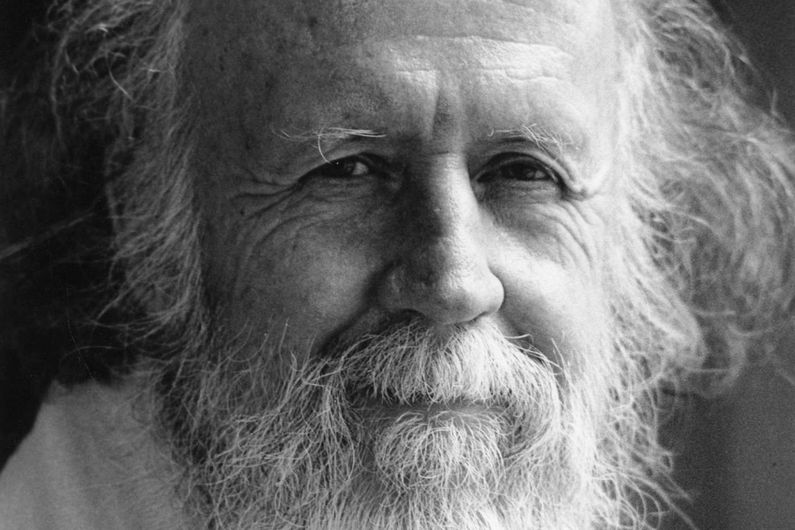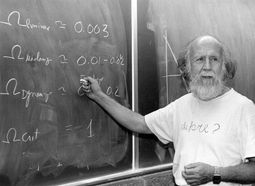Hubert Reeves: a star expires
- UdeMNouvelles
10/13/2023
- Béatrice St-Cyr-Leroux
The revered astrophysicist, professor and UdeM alumnus died today at the age of 91.
An outstanding popularizer of astrophysics, a sensitive humanist, a poetic writer, a dignified and humble man of science: Hubert Reeves, who died today in Paris at the age of 91, looms large in the collective memory here and abroad, and especially at his alma mater, Université de Montréal.
With a bachelor's degree in physics from UdeM in 1953, Reeves taught the subject from 1960 to 1964, and maintained his link with the university throughout his career as an associate professor and later as an honorary professor. Every year, he returned to his old department to teach cosmology.
In 1984, the university awarded Reeves an honorary doctorate in recognition of his major contribution to astrophysics, in particular his studies on "the abundance of heavy hydrogen before the formation of the first stars", which led to a better understanding of the Big Bang. Seven other universities in Canada and Europe followed suit with honorary PhDs of their own.
Every year, through the Hubert Reeves Fund, a bursary is awarded to a graduate student in astrophysics at UdeM. Reeves' passion for astronomy and his knowledge of ecology were also a regular feature of the public lectures he gave for the university's Les Belles Heures (formerly Les Belles Soirées) series.
René Doyon, himself a renowned astrophysicist and UdeM physics professor, had the good fortune to be Reeves' student, and paid tribute to his former professor as his death was announced.
"All of Quebec mourns the passing of the grandfather of Quebec astrophysics and one of the greatest scientific communicators," said Doyon. "His curiosity, his love of nature and his willingness to share it with the public, so poetically, will always remain an immense source of admiration and inspiration. The beauty of the Universe and the fragility of our small planet will always resonate with the name Hubert Reeves."
A dual citizen and ardent environmentalist
Besides the U.S., where two of his four children were born and where he was a scientific advisor to NASA in the early 1960s, Reeves lived much of his adult life in France. He was granted citizenship there and worked as director of research at the Centre national de la recherche scientifique (CNRS) and scientific adviser to the Commissariat à l'énergie atomique et aux énergies alternatives (CEA).
An ardent defender of the environment, from 2001 to his death he was chairman and and then honorary chairman of the French environmental protection association Humanité et biodiversité.
His bestselling books, in particular Patience dans l'azur (1981) and L'heure de s'enivrer (1986), introduced the general public to the mysteries of astrophysics and were translated in more than 25 languages, making their author one of the best-known physicists in the world.
In the course of his extensive national and international career, Reeves received many awards, including the Albert Einstein Medal from the Swiss-based Albert Einstein Society (in 2001) and the Samuel de Champlain Prize from the France-Canada Institute (in 2002). In France he was made a Commander of the Légion d'honneur, and in Canada, was named a Companion of the Order of Canada, a Fellow of the Royal Society of Canada, and a Grand Officer of the Ordre national du Québec.















